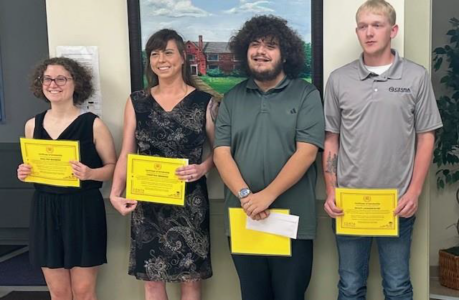Residents have questions about COVID
As the number of cases of COVID-19 continues to rise in Warren County, people have many questions, particularly related to COVID and schools.
Warren County School District, Warren General Hospital, Warren Pediatrics Associates, and Warren County Emergency Management Agency have worked together to answer some of the most frequently asked questions.
COVID-19 and Warren County Schools
Q: Are we seeing COVID cases in school-aged children in Warren County?
A: Yes, we are, but not many so far. Our school systems have done an admirable job in trying to keep our students & faculty safe.
Across the U.S., about 10% of COVID cases occur in children.
Q: How will I know if my child has COVID-19? What should I be looking for?
A: In children, just like in adults, the symptoms can vary a lot. And up to 40% of COVID cases have no symptoms. Children are more likely to have milder and less symptoms than adults.
The most common symptoms are fever (100.4 or higher) and cough. However, the list might also include: runny nose, sore throat, loss of taste or smell, shortness of breath, stomach aches, nausea and diarrhea, fatigue, headache & body aches.
And it can be tricky… not having a fever DOES NOT mean that this couldn’t be COVID-19. And you can see that symptoms from common colds and seasonal flu (influenza) often overlap with COVID.
Q: When should I call the doctor about my child’s symptoms? When should I get my child tested?
A: Given the potential for having COVID, call your provider soon after symptoms appear. Since children can have mild symptoms with COVID and spread it to others, testing for the virus may help greatly in planning and preventing further spread.
Q: What if the test comes back positive for COVID?
A: If positive, your child should isolate himself, staying away from other people for 10 days from the time symptoms developed. If possible, use a separate bedroom & bathroom. He should wear a mask when around family members, and they should mask as well.
After that 10 day period, to return to school, symptoms must be improving and no fever present for at least 24 hours.
Q: Should my child go to school, activities, parties, and events with cold or flu symptoms, even if they are minor?
A: NO! Because COVID can look just like the common cold, he should avoid those situations until well again. This is where testing may be helpful as well, to make sure the illness is not COVID-19 and spread to those much more vulnerable.
Q: What should I do if I find out my child has been in close contact with a positive COVID-19 case? Will he need to be quarantined?
A: “Close contact” is considered spending a total of 15 minutes within 6 feet of a COVID-positive person without the contact person wearing a mask.
“Quarantine” refers to people who have a significant exposure (a “close contact’) but who have no symptoms.
So, by Center for Disease Control guidelines, a person with close contact with someone who has COVID needs to quarantine for 14 days after the exposure. The virus can be growing up to 14 days before any symptoms appear. Even if testing is done and is negative, that person should still quarantine for the 14 days. During that time, fever and symptoms should be monitored and testing done if they develop.
Just like in people with a positive COVID test, masks should be worn and social distancing done within the household during quarantine. “Isolation from others” refers to people who are infected with COVID-19, as in the preceding question.
Q: My spouse / significant other was in close contact with a positive case at work, and he / she has been told to quarantine. Does everyone in the house have to quarantine?
A: No. “Contacts of contacts” do not have to quarantine. Your spouse, as a “close contact,” should quarantine as recommended and monitor for symptoms.
Q: What general precautions should we be taking outside of school?
A: Inside or outside of school, we recommend:
¯ Wearing a mask when within 6 feet of others outside of immediate family
¯ Staying 6 feet away from others when possible
¯ Washing your hands frequently for at least 20 seconds.
¯ Cleaning frequently touched areas with disinfectant.
¯ Avoiding crowds.
¯ Favoring outdoor rather than indoor activities when possible.
¯ Staying home if you’re feeling sick.
Q: Where can I find recommendations in these situations?
A: On-line websites:
¯ https://www.cdc.gov/coronavirus/2019-ncov/daily-life-coping/children/symptoms.html
¯ https://www.mayoclinic.org/diseases-conditions/coronavirus/in-depth/coronavirus-in-babies-and-children/art-20484405
¯ https://www.cdc.gov/coronavirus/2019-ncov/daily-life-coping/parental-resource-kit/index.html
Signed,
Amy Stewart, Superintendent of Warren County Schools
Ken McCorrison, Emergency Management Agency
Drs. Sunny Thomas & Tim Coombs and Stephanie Williams, nurse manager – Warren Pediatric Associates
Joe Akif, CNO/COO, Michele Welker, Infection Control, Beth Anderson, Emergency Preparedness and Keith Price, Medical Director — Warren General Hospital



